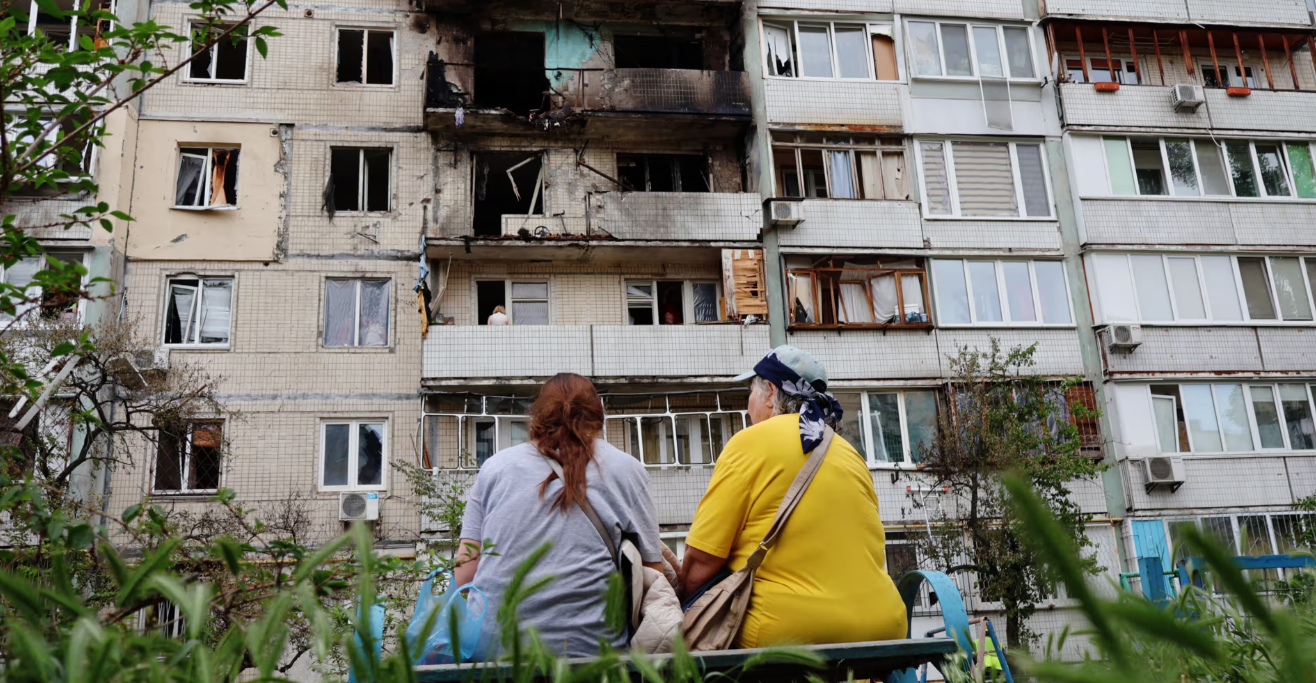French President Emmanuel Macron has declared that US President Donald Trump is beginning to recognize the extent of Vladimir Putin’s deceptions regarding the war in Ukraine, as the conflict enters a critical phase marked by escalating attacks and complex international dynamics.
Speaking during a diplomatic visit to Vietnam, Macron addressed Russia’s continuing military operations against Ukraine, suggesting that Trump’s growing awareness of Putin’s dishonesty could lead to significant policy shifts. The French president expressed optimism that Trump’s apparent frustration with the Russian leader would “translate into action”, with expectations that such action would likely involve coordinated sanctions efforts alongside the European Union.
The comments come as Ukraine faces an intensification of Russian attacks, including what officials describe as a record-breaking drone strike that has underscored the evolving nature of the conflict. The assault represents the latest escalation in a war that has increasingly relied on unmanned aerial vehicles and sophisticated weaponry systems.
The international dimensions of the conflict have become increasingly complex, with allegations emerging about third-party involvement in weapons supply chains. Ukrainian President Volodymyr Zelenskyy made serious accusations last month, claiming that China has been directly supplying weapons to Russia, including critical materials such as gunpowder and artillery components. Zelenskyy’s allegations, which he said were based on intelligence gathered by Ukrainian security and intelligence agencies, also suggested that Chinese representatives were actively participating in weapons production activities on Russian territory.
China has categorically rejected these accusations, with the country’s foreign minister dismissing them as “groundless” and emphasizing Beijing’s stated commitment to promoting peace initiatives. Chinese officials have maintained that their government has been actively working to facilitate ceasefire negotiations and encourage diplomatic dialogue between the warring parties.
Despite these denials, the relationship between China and Russia in the context of military technology has drawn significant scrutiny. Intelligence assessments indicate that Russia’s arms industry has become heavily dependent on Chinese-manufactured components, a reliance that has proven crucial to sustaining Moscow’s military operations. Ukraine, while also utilizing some Chinese components, has been making deliberate efforts to reduce its dependence on Beijing-sourced technology and equipment.
The drone warfare aspect of the conflict has highlighted the global nature of military supply chains. Both Russian and Ukrainian forces have made extensive use of commercial Mavic drones manufactured by the Chinese company DJI, transforming civilian technology into military assets. However, Ukrainian forces have been actively working to diversify their drone capabilities and reduce reliance on Chinese-manufactured systems, recognizing the strategic vulnerabilities inherent in depending on technology from a country that maintains close ties with their adversary.
The geopolitical backdrop to these developments traces back to February 2022, when China and Russia formally declared a “no limits” partnership during Vladimir Putin’s visit to Beijing to meet with Chinese President Xi Jinping. This declaration occurred just weeks before Putin launched the full-scale invasion of Ukraine, raising questions about the level of coordination and prior knowledge between the two nations regarding Russia’s military intentions.
Macron’s assessment of Trump’s evolving understanding of Putin’s approach suggests a potential shift in US-Russia relations under the current administration. The French president’s comments indicate that European allies are watching closely for signs that American policy toward Russia may harden, particularly through economic sanctions that could complement existing European measures.
The record drone strike mentioned in connection with these diplomatic developments represents the latest escalation in a conflict that has consistently evolved in its tactical approaches. The use of unmanned systems has become a defining characteristic of the war, with both sides adapting civilian technology for military purposes and developing increasingly sophisticated countermeasures.
As the conflict continues, the international community faces growing pressure to address not only the direct military confrontation between Russia and Ukraine but also the broader network of relationships and supply chains that sustain the war effort. The allegations regarding Chinese involvement, while disputed by Beijing, highlight the global implications of what began as a regional conflict.
The diplomatic positioning described by Macron reflects ongoing European efforts to maintain pressure on Russia while encouraging stronger international cooperation in response to the invasion. French officials, along with their European counterparts, continue to advocate for coordinated international responses that go beyond symbolic gestures to include substantive economic and political measures.
The situation remains fluid, with diplomatic observers noting that the relationship between key international players continues to evolve as the conflict progresses. The combination of military escalation, as evidenced by the record drone strike, and shifting diplomatic dynamics suggests that the war’s trajectory remains highly dependent on decisions made not only in Moscow and Kyiv but also in Washington, Beijing, and European capitals.
The ongoing developments underscore the complexity of modern international conflicts, where traditional military engagement intersects with global supply chains, diplomatic partnerships, and evolving technological capabilities to create challenges that extend far beyond the immediate battlefield.


